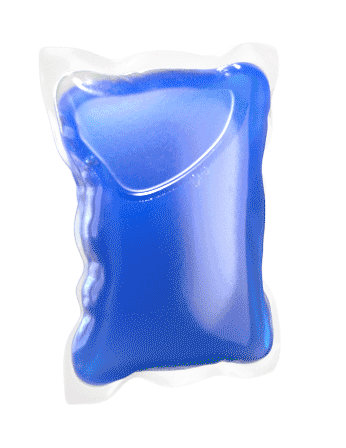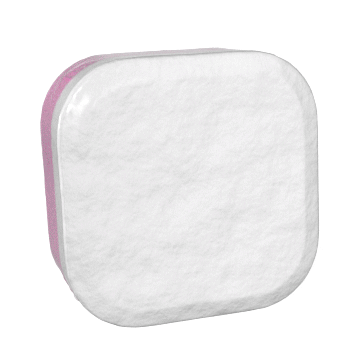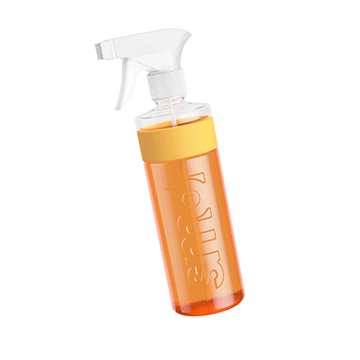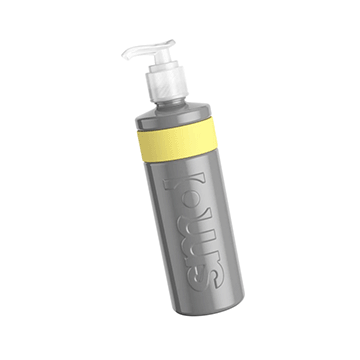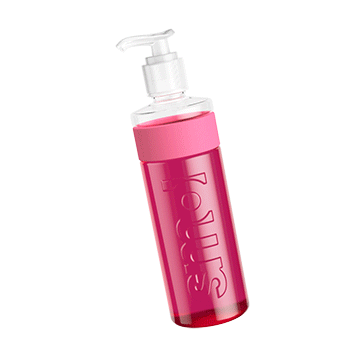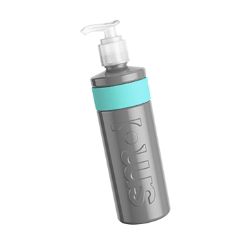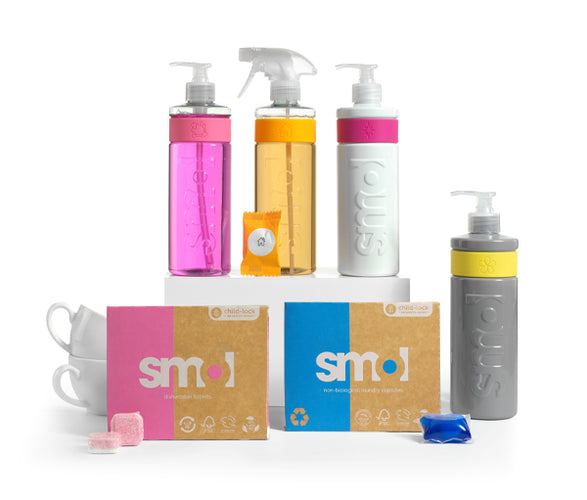
A recent study found just 56 multinationals create over half the world’s plastic pollution. ¹
Companies like Unilever, Johnson & Johnson, Procter & Gamble, Henkel; brands responsible for so many laundry, cleaning and beauty products all packaged in virgin plastic. The study also found every increase in plastic created, saw an equal increase in plastic pollution.
It’s clear then, plastic production = plastic pollution.
Next month is Plastic Free July, a movement to encourage us all to refuse single-use plastic; and a super simple way to do this is to switch to refill systems.
Our household cleaning and body care products are either plastic-free or refillable. There’s no single-use plastic and our bottles-for-life are 100% recycled plastic; that’s plastic that was already created and is now being reused. And because you keep your bottles and refill them… there’s no need to rely on a broken recycling system or bring new bottles into your home.
And if you’re looking to purge plastic from your personal care products… check out our plastic purger and find how many grams of plastic YOUR household could save with a few simple body swaps! You might be surprised.


Hands up if you’ve ever been given some gorgeous flowers that were then let down by having to sit in cloudy glass vases! It’s a common problem mostly caused by pesky calcium deposits in hard water that’s been standing in a vase for days on end. Dirty stems and leaves will also add to the foggy residue left behind.
BUT there’s an easy way back to clear sparkling glass that doesn’t involve effort or scrubbing!
- Fill your glass vase with hot water and stand it in your sink.
- Drop in a smol dishwasher tablet and leave to dissolve.
- Let the solution stand overnight.
- Rinse out the vase the next day in cool water.
Ta-Dah! This effortless hack should have removed 99% of the muck!
You can use the above method for other cloud-susceptible containers, like wine decanters, coffee pots, jars, dishes or bowls. smol dishwasher tablets make a big difference!


One of our innovation managers Sophie has brought us so many wonderful smol products in her time with us… let’s find out which is her fave!
can you give a brief description of your job?
As an innovation manager at smol I have the wonderful job of bringing all of our exciting new products to our customers! This involves lots of research to decide what’s missing from our product range and then working with suppliers to make sure our formulas & packaging meet all of our goals of excellent performance whilst being kinder to the planet. I work super closely with the whole of the smol team, from making sure our products make it on the website, to briefing the customer service team on how to answer all the product questions.
what’s your favourite smol product and why?
Our bio pods were the first ever product I tried from smol, years before I joined the company, and I think they’re amazing. Laundry is my favourite chore and it's so nice seeing my clothes come out the machine looking spotless & smelling fresh.
what’s the best bit about your job and working for smol?
My favourite part about my job is trialling all the new products, it never gets old getting samples through the post! The best bit about working for smol is our fantastic company culture, everyone’s so passionate about doing what’s right and we work really collaboratively on our goals.
what’s a handy eco-friendly tip you can share for household cleaning?
Washing up liquid does almost everything, so there’s no need for bottles and bottles of products. I use it to clean my windows, paint brushes, garden furniture…everything!
it’s the weekend... where will we find you and what are you doing?
I’m renovating my Victorian home at the minute so I’ll usually be found stripping paint or wallpaper, sanding something and then utilising the whole smol range to clean up all the mess. If I can escape the building site I’ll usually be at a pilates class or taking my dog Otis for a walk around our local park.


Now for a bit of feel good… Thanks to your incredible support and donations, 32 washing machines are on their way to schools that need them. We selected these schools based on their need for our help and their ability to make a real impact with a mini-laundrette in a community with high instances of hygiene poverty among school age children.
Take a look at the map below... We’ve successfully installed washing machines in 94 schools across the 3 years that we’ve been running Suds in Schools. These shiny new machines aren’t just about clean clothes – they’re helping to create healthier, happier learning environments where kids can really shine.
But wait, there’s more! We’re not stopping here. Our mission is to keep growing and reach even more schools, especially in communities that need it the most. We’re continuing our work with The Hygiene Bank and their community heroes to find more schools that could use a little Suds magic. So, if you know of a school that would benefit from our help, please do get in touch!
A HUGE thank you to all of our donors – Suds in Schools wouldn’t be possible without our amazing customers. Together, we’re making a splash and impacting children’s mental health across the UK, one load of laundry at a time.



Did you know the bubbles in your washing up liquid ARE NOT what’s cleaning the dishes?
It’s actually 2 types of surfactants working in very clever ways.
Non ionic surfactants remove the surface tension of water (a barrier between dirt and detergent). With the barrier gone, detergent can get up really close and personal with the grime.
Anionic surfactants have dirt-loving tails and water-loving heads. Their tails stick to grime on our plates while their heads cling to the water, lifting the dirt off and holding it in place until we pull out the plug… and it all heads down the drain. Anionic surfactants will form some bubbles as they work but that’s NOT what got your dishes clean.
So why the obsession with bubbles?

When detergents first started replacing soap, big brand washing up liquids ADDED foaming agents so we’d still see the bubbles we were used to. It was an early marketing gimmick!
Most washing up liquids use more anionic surfactants than are necessary for exactly this reason.
Here at smol we don’t add pointless ingredients. Our plant-powered pink grapefruit washing up liquid gives incredible results even in cold water, so next time you’re washing up remember, the bubbles are fun… but they’re not what’s getting things clean.


Guess how many bottles of fabric conditioner were sold from UK shops last year?*
- 36 million
- 82 million
- 121 million
… Yep… it’s 121 million (no surprise it was the biggest!) but what an insane amount of single-use plastic. Why oh why can’t the other brands #bemoresmol ?!
So, in preparation for Plastic Free July, how about enjoying some gorgeously-scented laundry AND getting rid of plastic? Our refillable fabric conditioner’s got your name all over it.

Check out the best bits of our much-loved, super-concentrated outdoorsy fabric conditioner:
- long-lasting fragrance that’s locked-in
- crisp apple and orange blossom scent
- touch-activated scent technology
- concentrated formula that uses 77% less than the big brands
- 100% recycled plastic bottle-for-life
- carton refills that cut carbon & single-use plastic
- vegan & cruelty-free with NO animal fat
There’s no denying it just smells so good, so give it a try and your laundry will thank you!
GET STARTED
...with your smol Fabric Conditioner.

Right, we’re off to bring the laundry in; but whether to iron or not to iron? That is the question ;). We’ll catch up in the next smotalk but in the meantime if you feel in need of some more cleaning know-how, head over to our socials on Facebook, Instagram or TikTok and check out our private community group page on Facebook; smol hacks, tips and tricks. See you there!
¹ Global producer responsibility for plastic pollution SCIENCE ADVANCES 24 Apr 2024 Vol 10, Issue 17
*IRI data; 52 weeks to March 2024
